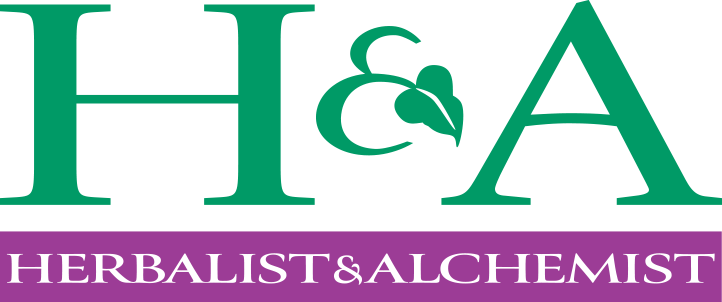I’m still reviewing notes and seeing things I completely
missed at the time and kick myself for not “getting it,”
back then. One of my favorite practices was constructing
Triune Formulas—the system is incredible and a genius way
to study and understand how herbs work together to treat the
whole person. It reminded me of a foundation sculpture class
where I had to build a chair out of sheetrock. There’s a lot
of ways things can fit together but they do have to fit, and
you have to make the best decisions you can, using the
material you have. In the end, you want to be able to sit on
it and it should hold your weight without falling
apart. Anyway, I enjoyed the process so much that I ended up
proposing it as a topic for a series of portraits based on
creating triune formulas for the people I painted and was
awarded a grant and a small exhibition to make the work. I
think the best part about David’s program for me is the way
it has digested over time, long after the moment, still
kindling the fire. It’s an experience I was lucky to be a
part of.
How are you using your knowledge today?
About five years ago I launched my business,
Volta Organics. I make organic soap, shampoo, bath salts,
scrubs, salves, balms, shaving soap, beard oil, and more. So
cleaning and pampering yourself isn’t quite the way of
herbal medicine but I’ve been surprised at how many people
have come to me, lifted their shirt, and asked me, "what is
that?!" These are the times when I’ve been relieved to have
some background in herbal medicine because I’m able to ask
real questions and offer suggestions that go beyond selling
someone something. I think maybe once or twice in five years
has a rash had anything to do with what kind of soap that
person was using. When I was doing street fairs, I would
usually end up writing a list of things I thought would help
and send them on their way, hoping they found relief.
Now that I have a storefront (I opened Volta Market in April, 2014), I’m fielding the same questions but
am now able to provide ingredients, custom preparations,
herbs, teas, tinctures, and be there to answer questions and
respond to whether something is working or not. I’m
constantly referring to David’s Materia Medica sheets and
lots of notes taken over the years, and have a small
inventory of go-to herbs and Herbalist & Alchemist formulas
while I get reacquainted with plants that have gone off my
radar.
There’s actually been enough interest in an
herbal approach to healthcare in the neighborhood, and the
questions are starting to get a little more involved, so I’d
really like to continue my studies. I’m looking for a
program that can accommodate a mother of a three year old,
shop owner, soap maker, artist. I’m accepting
recommendations. I always seem to have so much going on but
the plants keep creeping their way in, so I try to pay
attention. (I had a dream about ground ivy once so do what
you will with that.)
Medicinal plant use aside, though, the most common way
I’ve been able to use my knowledge is to make better choices
when it comes to the products I consume and sell to others
by honoring how plants are used—from growing and
harvesting to the ingredients they’re manufactured with, to
how they’re altered and marketed or used to benefit life. I
think there’s so much inherent wisdom in plants and the
natural world, and I hope I can always be receptive to that
in spite of myself.
